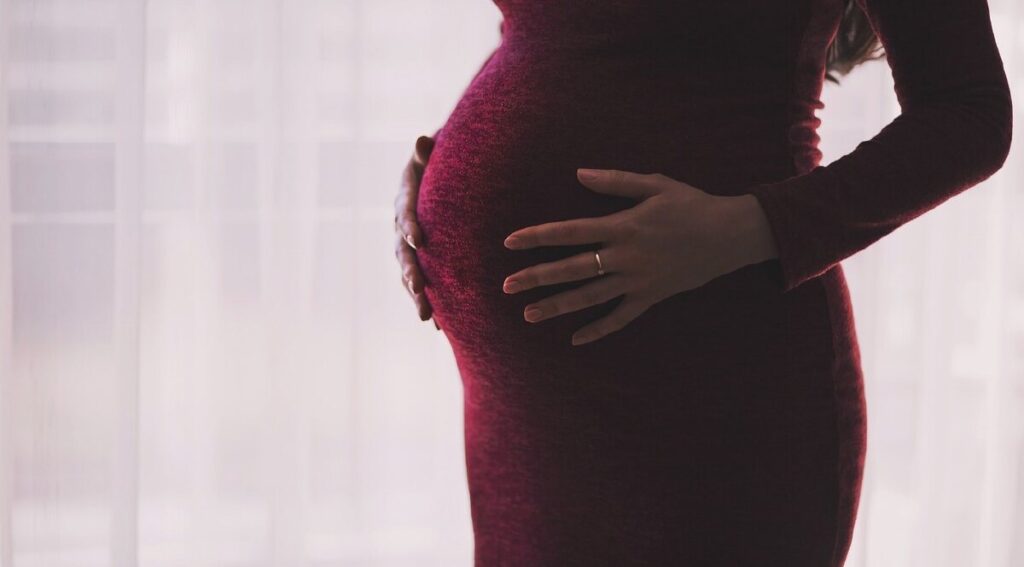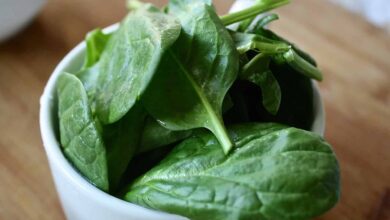Can Pregnant Women Eat Shrimp: Safety and Considerations

Pregnancy is a critical period requiring careful consideration of dietary choices to safeguard the health and well-being of both the expectant mother and her developing baby. Amidst the myriad queries that arise during this phase, a frequently posed question revolves around the safety of consuming shrimp for pregnant women. In this discussion, we will delve into the topic of whether it is advisable for expectant mothers to include shrimp in their diets during pregnancy.
Can Pregnant Women Safely Consume Shrimp While Ill?

During periods of illness, the dietary needs of pregnant women may undergo adjustments based on the nature of the ailment and the accompanying symptoms. In general, if a pregnant woman is unwell but able to tolerate food intake, moderate consumption of cooked shrimp is typically considered safe. Shrimp boasts valuable nutrients such as protein and omega-3 fatty acids, which play pivotal roles in promoting overall health and supporting the baby’s development. However, several factors warrant consideration in such situations.
Firstly, if the illness affects the gastrointestinal tract, resulting in symptoms like vomiting or diarrhea, it is advisable to steer clear of shrimp and other challenging-to-digest foods until the symptoms alleviate. Secondly, if there are specific dietary constraints or precautionary measures associated with the illness, it is prudent to seek guidance from a healthcare provider or a registered dietitian when navigating dietary choices while unwell during pregnancy.
Eating Shrimp During Pregnancy: Considerations for the First, Second, and Third Trimesters

First Trimester
- Shrimp provides protein for tissue development.
- Omega-3s aid brain and eye development.
- Ensure thorough cooking for safety.
Second Trimester
- Shrimp offers iron for blood production.
- Rich in vitamins and minerals for immune support.
- Choose healthy cooking methods.
Third Trimester
- Protein supports muscle growth.
- Omega-3s continue brain development.
- Incorporate shrimp for balanced nutrition.
Can I Eat Raw Shrimp While Pregnant?
Risks Associated with Consuming Raw Shrimp
While sushi and sashimi enthusiasts may crave the taste of raw shrimp, it’s essential for pregnant women to exercise caution when it comes to consuming raw or undercooked seafood. Raw shrimp, like other forms of raw seafood, carries an increased risk of exposure to harmful bacteria and parasites, such as listeria and Vibrio vulnificus, which can pose serious health risks to both the mother and the baby.
To ensure the safety of your pregnancy, it’s best to avoid raw shrimp and opt for thoroughly cooked alternatives to reduce the risk of foodborne illnesses.
Can i Eat Shrimp while trying to Conceive?

Yes, you can generally eat Shrimp while trying to conceive. Shrimp can be a part of a healthy and balanced diet, providing important nutrients such as protein, omega-3 fatty acids, vitamins, and minerals. These nutrients benefit overall health and support fertility and reproductive function.
Maintaining a balanced diet that includes a variety of foods, including Shrimp, can benefit overall health and fertility. However, it’s always a good idea to consult with your healthcare provider to develop a fertility-friendly.
Benefits of Shrimp during Pregnancy: A Nutrient-Rich Seafood Choice for Pregnancy

Shrimp, renowned for its delicate flavor and culinary versatility, serves as a valuable addition to prenatal diets, offering an array of essential nutrients beneficial for maternal and fetal health.
Here’s how incorporating shrimp into a balanced pregnancy diet can yield numerous advantages, enriched with semantic SEO for heightened visibility:
1. Rich in Essential Nutrients
Shrimp stands out as a nutrient-dense seafood option, providing a significant source of high-quality protein crucial for fostering the development of the baby’s tissues and organs during pregnancy.
2. Omega-3 Fatty Acids for Brain and Eye Development
Containing omega-3 fatty acids like EPA and DHA, shrimp plays a pivotal role in supporting the development of the baby’s brain and eyes, laying a foundation for cognitive and visual acuity.
3. Abundant in Vitamins and Minerals
Shrimp boasts a bounty of vitamins and minerals essential for maternal and fetal well-being. Notably high in vitamin B12, shrimp aids in red blood cell formation and neurological development, while also offering iodine, selenium, and zinc for various bodily functions.
4. Low in Saturated Fat
With relatively low levels of saturated fat compared to other animal protein sources, shrimp contributes to cardiovascular health maintenance during pregnancy, supporting overall well-being.
5. Iron-Rich for Anemia Prevention
Shrimp’s iron content plays a pivotal role in preventing iron-deficiency anemia, a prevalent concern in pregnancy. Adequate iron supports the production of red blood cells, ensuring optimal oxygen transport to the developing baby.
6. Mercury Levels Consideration
In contrast to larger predatory fish, shrimp generally maintains low mercury levels. By opting for shrimp with minimal mercury content, pregnant women can reap the nutritional benefits without significant mercury-related risks.
7. Supportive of Weight Management
With its relatively low calorie count and satisfying protein content, shrimp serves as a favorable option for maintaining healthy weight during pregnancy, contributing to balanced nutrition and satiety.
8. Selenium and Antioxidant Properties
Shrimp’s richness in selenium bolsters thyroid function and antioxidant defense, safeguarding against cellular damage and promoting overall health and vitality.
While shrimp presents a wealth of nutritional advantages, individual dietary needs and considerations may vary, underscoring the importance of personalized dietary choices during pregnancy.
Avoidance of Shrimp during Pregnancy: Cons and Considerations

While Shrimp can be a part of a healthy diet, there are a few reasons why some women may choose to avoid Shrimp during pregnancy. As Shrimp is a common food allergen, women with a known allergy or a family history of seafood allergies may decide to avoid it to prevent any potential allergic reactions if a pregnant woman has been advised by her healthcare provider to avoid certain types of seafood due to their mercury content.
- Allergy Risk: Shrimp is a common allergen, and some individuals may experience allergic reactions. Pregnant women with a known shellfish allergy or a family history of such allergies should avoid Shrimp to prevent adverse reactions.
- Foodborne Illness: Seafood, including Shrimp, can be a potential source of foodborne illnesses if improperly handled and cooked. Pregnant women should ensure that Shrimp is fresh, properly stored, and thoroughly cooked to reduce the risk of bacterial or viral contamination.
- Shellfish Toxins: Shellfish can sometimes contain harmful toxins, such as those produced during harmful algal blooms. However, regulatory bodies and monitoring systems ensure that commercially available Shrimp is generally safe to consume.
- Cholesterol Concerns: Shrimp has a relatively high cholesterol content compared to other seafood. However, the impact of dietary cholesterol on blood cholesterol levels is complex, and Shrimp’s overall nutritional benefits outweigh potential concerns.
- Environmental Impact: Shrimp farming practices can have environmental consequences, including habitat destruction and water pollution. Opting for sustainably sourced Shrimp can help mitigate these concerns.
Too much Pregnant women eat Shrimp
While incorporating shrimp into a pregnancy diet can offer valuable nutritional benefits, excessive consumption may warrant caution due to potential risks associated with heightened mercury exposure and dietary imbalance. While shrimp can indeed contribute to a healthy prenatal diet, it’s crucial to diversify protein sources and maintain a well-rounded intake of essential nutrients for optimal maternal and fetal health.
Furthermore, although shrimp typically contains lower mercury levels compared to certain predatory fish, it’s important to remain vigilant about potential mercury exposure, as elevated levels can pose risks to the developing baby’s nervous system.
Guidelines and Precautions

- Moderation: As with any food, moderation is key. It is generally recommended that pregnant women limit their shrimp consumption to 2-3 servings per week to balance the benefits with potential risks.
- Quality and Source: Choose Shrimp from reputable sources to ensure freshness and reduce the risk of contamination. Opt for wild-caught or sustainably farmed Shrimp whenever possible.
- Cooking and Storage: Cook Shrimp thoroughly until it reaches an internal temperature of 145°F (63°C) to eliminate potential bacteria or parasites. Avoid consuming raw or undercooked Shrimp.
- Food Safety: Like all seafood, Shrimp can be a potential source of foodborne illnesses if improperly handled and cooked. Pregnant women should ensure that Shrimp and other seafood are fresh, properly stored, and thoroughly cooked to minimize the risk of bacterial or viral contamination.
- Consult Healthcare Provider: Pregnant women must consult their healthcare provider or a registered dietitian for personalized advice based on their health needs, allergies, and concerns.
The decision to include Shrimp in the diet during pregnancy involves weighing the pros and cons.
FAQ’s
Is Shrimp Safe During Pregnancy?
Yes, shrimp is generally considered safe for pregnant women when consumed in moderation and properly cooked.
What Seafood is OK During Pregnancy?
Most seafood is safe for pregnant women to consume in moderation, including shrimp, salmon, and trout.
Can Pregnant Women Eat Sushi?
It’s recommended that pregnant women avoid consuming raw sushi due to the risk of foodborne illnesses. Opt for cooked sushi options instead.
Can Pregnant Women Eat Fried Fish?
Fried fish can be consumed in moderation during pregnancy, but it’s important to choose lean fish varieties and limit intake of fried foods.
Can My Pregnant Wife Eat Cooked Shrimp?
Yes, cooked shrimp is safe for pregnant women to eat and can be included as part of a balanced diet during pregnancy.
What Seafood to Avoid During Pregnancy?
Pregnant women should avoid high-mercury seafood such as shark, swordfish, king mackerel, and tilefish, as well as raw seafood like oysters and clams.
Is Shrimp High in Mercury?
Shrimp generally contains low levels of mercury compared to other seafood, making it a safer option for pregnant women when consumed in moderation.
Why is Shrimp Good for Pregnancy?
Shrimp is rich in protein, omega-3 fatty acids, vitamins, and minerals, making it beneficial for fetal development and maternal health during pregnancy.
Conclusion: shrimp can be a safe and nutritious addition to a pregnant woman’s diet, offering valuable nutrients like protein and omega-3 fatty acids. When consumed in moderation and properly cooked, shrimp can support maternal health and fetal development throughout pregnancy.
For more related articles, visit our Homepage.




